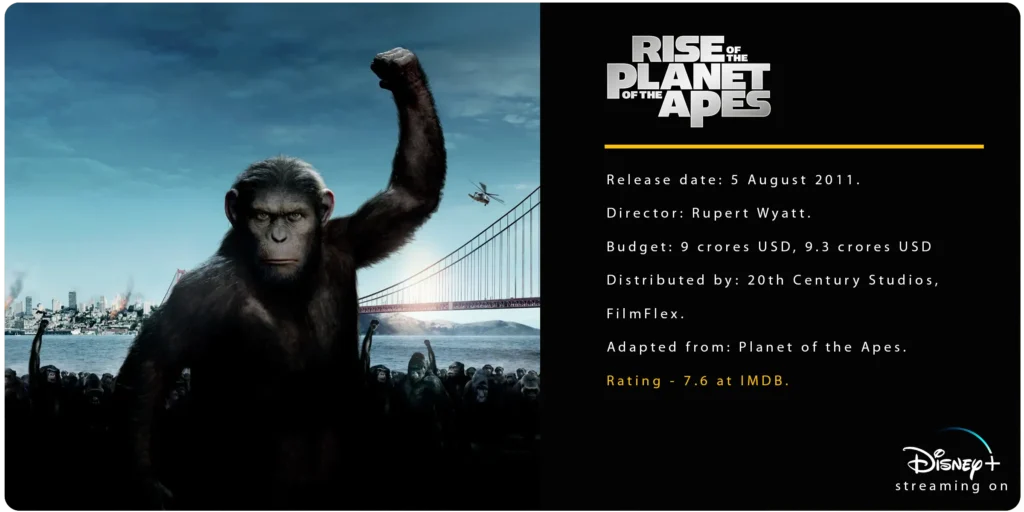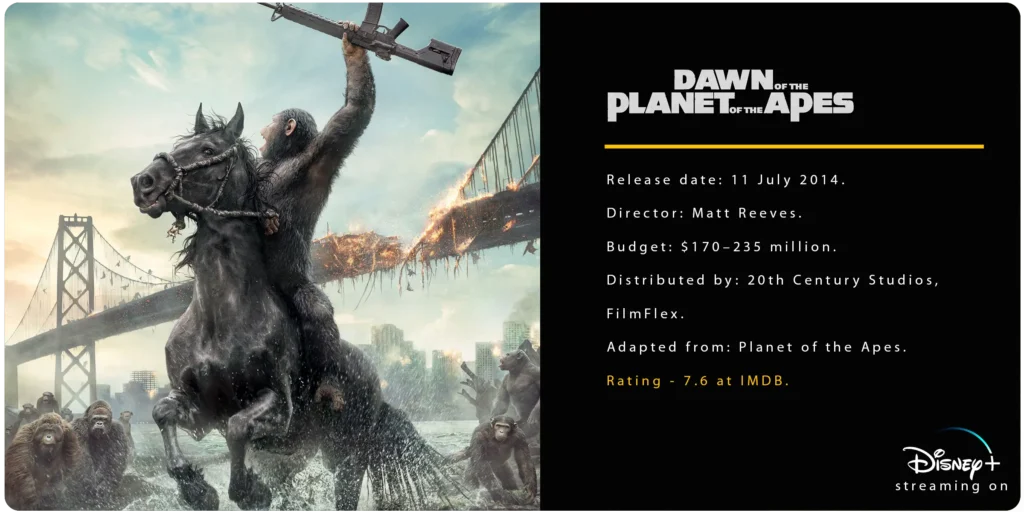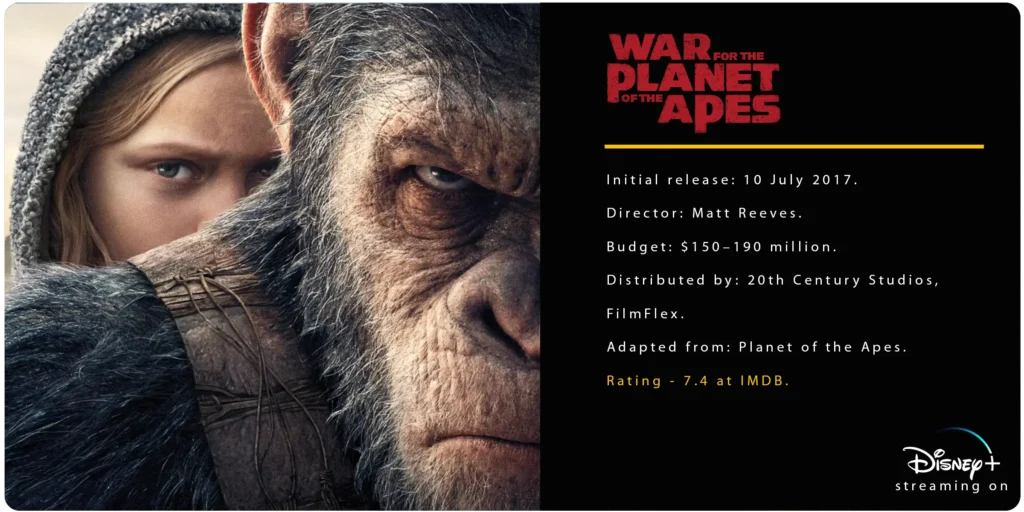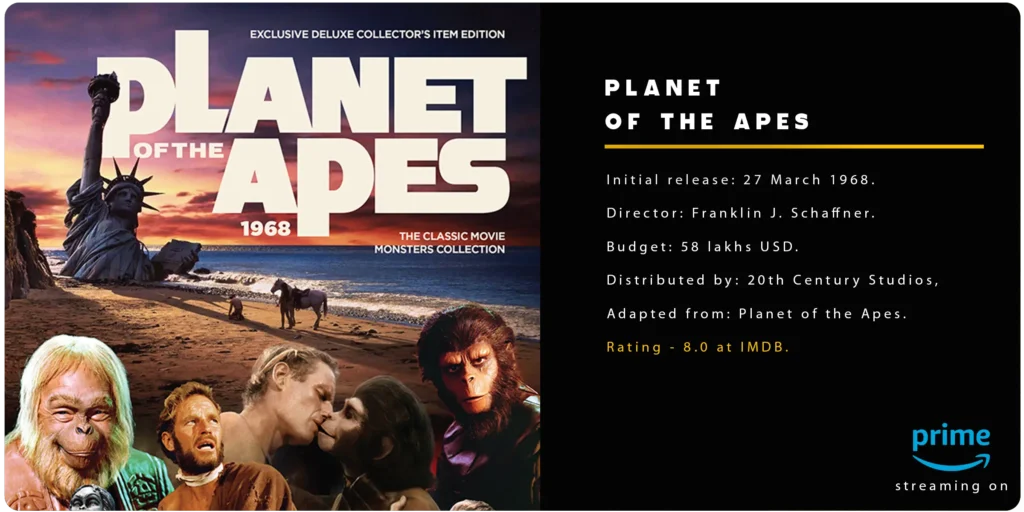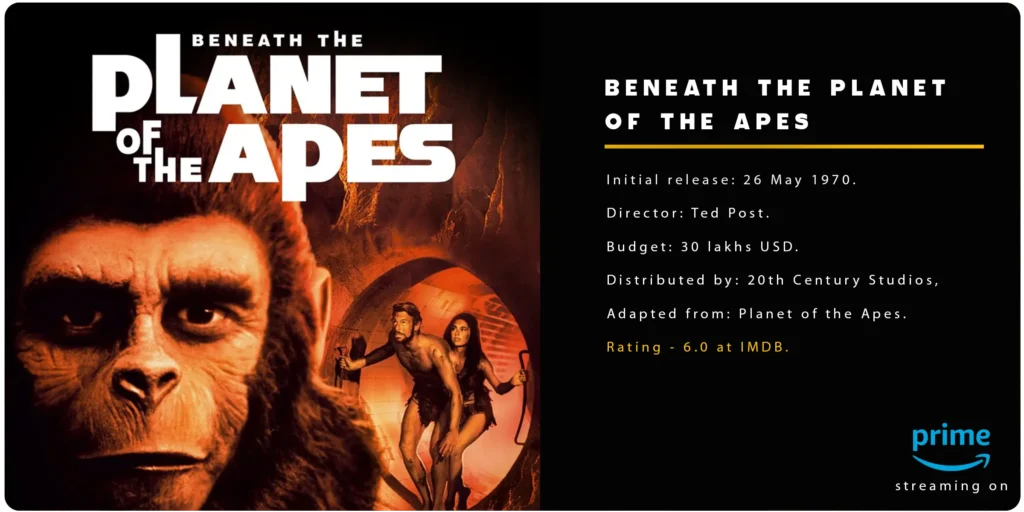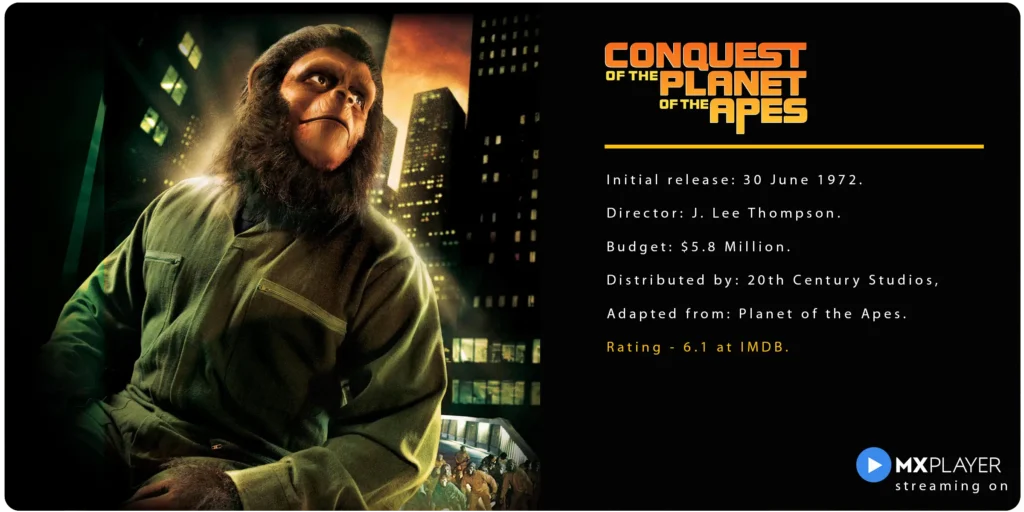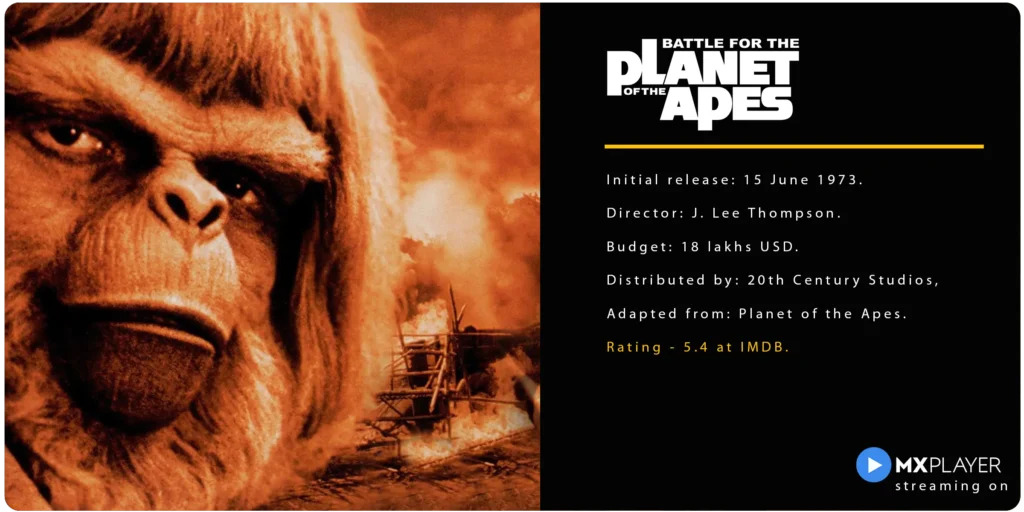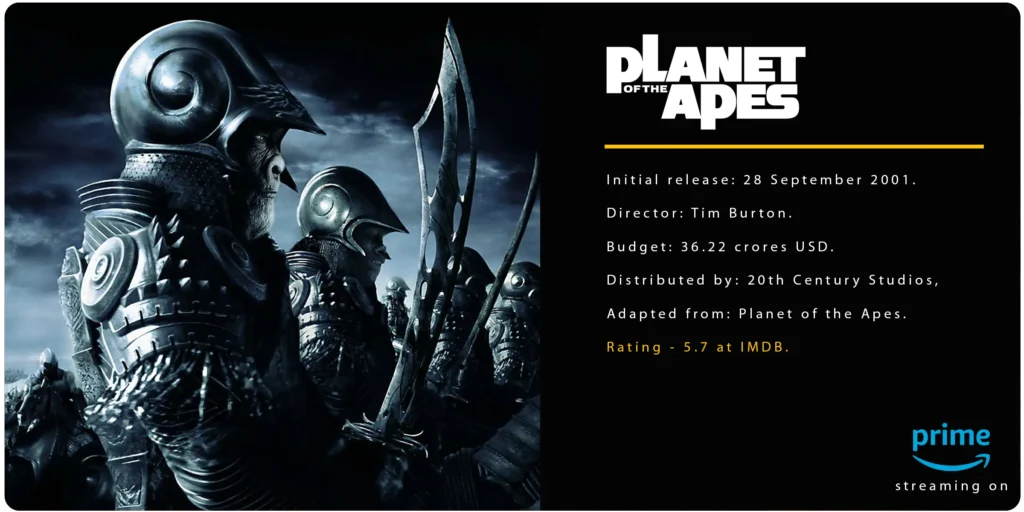The Underrated Epic of the Planet of the Apes:
Watch It Chronologically
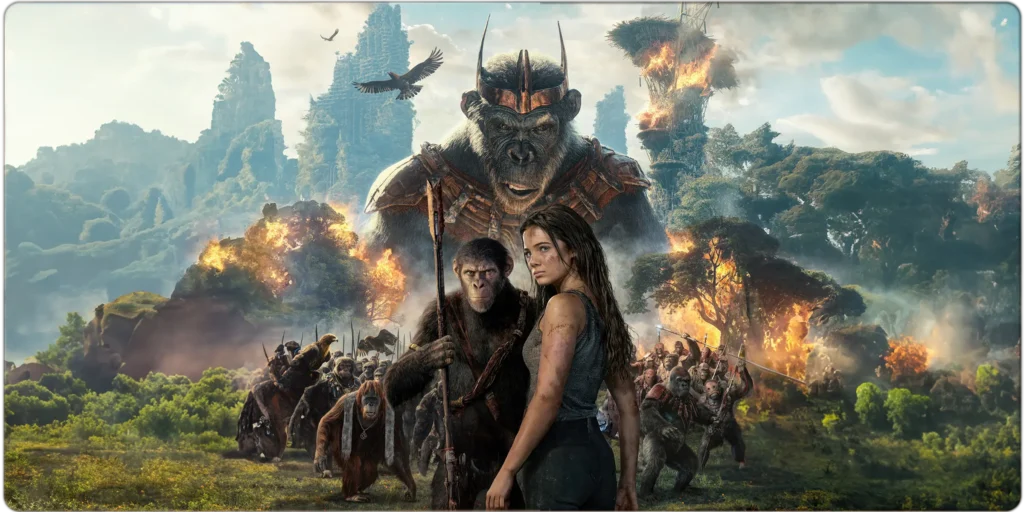
The “Planet of the Apes” franchise has captivated audiences for decades with its compelling narrative, innovative special effects, and thought-provoking themes. Spanning multiple films, this saga explores the rise and fall of civilizations, the struggle for dominance, and the deep questions about what it means to be human. Here’s a detailed guide on the franchise, including how to watch it chronologically, the storyline, and a conclusion on its cultural impact.
How to Watch the Planet of the Apes Franchise Chronologically
Watching the “Planet of the Apes” films in chronological order (story order, not release order) provides a coherent understanding of the narrative. Here’s the recommended sequence:
1. Rise of the Planet of the Apes (2011)
The reboot of the franchise begins with a scientific experiment gone awry. Will Rodman (James Franco), a scientist, develops a drug to cure Alzheimer’s disease, which inadvertently enhances the intelligence of apes. Caesar (Andy Serkis), a chimpanzee subjected to the drug, leads a revolution after being mistreated, setting the stage for the rise of intelligent apes.
2. Dawn of the Planet of the Apes (2014)
A decade after a deadly virus has wiped out much of humanity, Caesar leads a burgeoning ape civilization in the forests near San Francisco. Humans and apes strive to coexist, but mistrust and militant factions lead to a conflict that threatens both societies.
4. Kingdom of the Planet of the Apes (2024)

Kingdom of the Planet of the Apes takes place years after the events of “War for the Planet of the Apes,” where Caesar’s legacy has led to a thriving ape civilization. In this new era, intelligent apes have formed a sophisticated society, but peace is fragile as humans, now a dwindling and fragmented population, continue to pose a threat. The film follows the emergence of new leaders on both sides, as they grapple with power struggles and survival. The story delves into themes of governance, coexistence, and the enduring conflict between apes and humans, setting the stage for a dramatic and thought-provoking continuation of the franchise.
6. Beneath the Planet of the Apes (1970)
Following Taylor’s disappearance, another astronaut, Brent (James Franciscus), arrives on the planet. He uncovers an underground society of mutated humans worshiping a doomsday weapon. The conflict between the apes and the mutants escalates, leading to catastrophic consequences.
7. Escape from the Planet of the Apes (1971)
Zira (Kim Hunter) and Cornelius (Roddy McDowall), two intelligent apes from the future, travel back to present-day Earth. Their presence and the revelation of Earth’s future lead to paranoia and conflict, setting in motion events that will shape the future ape civilization.
Conclusion: Cultural Impact and Legacy
The “Planet of the Apes” franchise is more than a collection of science fiction films; it’s a profound commentary on society, power, and the human condition. The series has evolved with advancements in filmmaking technology, particularly with the 2011 reboot that employed ground-breaking motion capture performances by Andy Serkis.
The narrative’s exploration of themes such as animal rights, environmentalism, and the dangers of unchecked scientific experimentation resonates deeply with contemporary audiences. By watching the films in chronological order, viewers can appreciate the intricate storytelling and thematic depth that have made “Planet of the Apes” an enduring and influential part of cinematic history.
Whether you are a long-time fan or a newcomer, the journey through the rise and fall of ape and human civilizations is a thought-provoking experience that continues to captivate and inspire.


